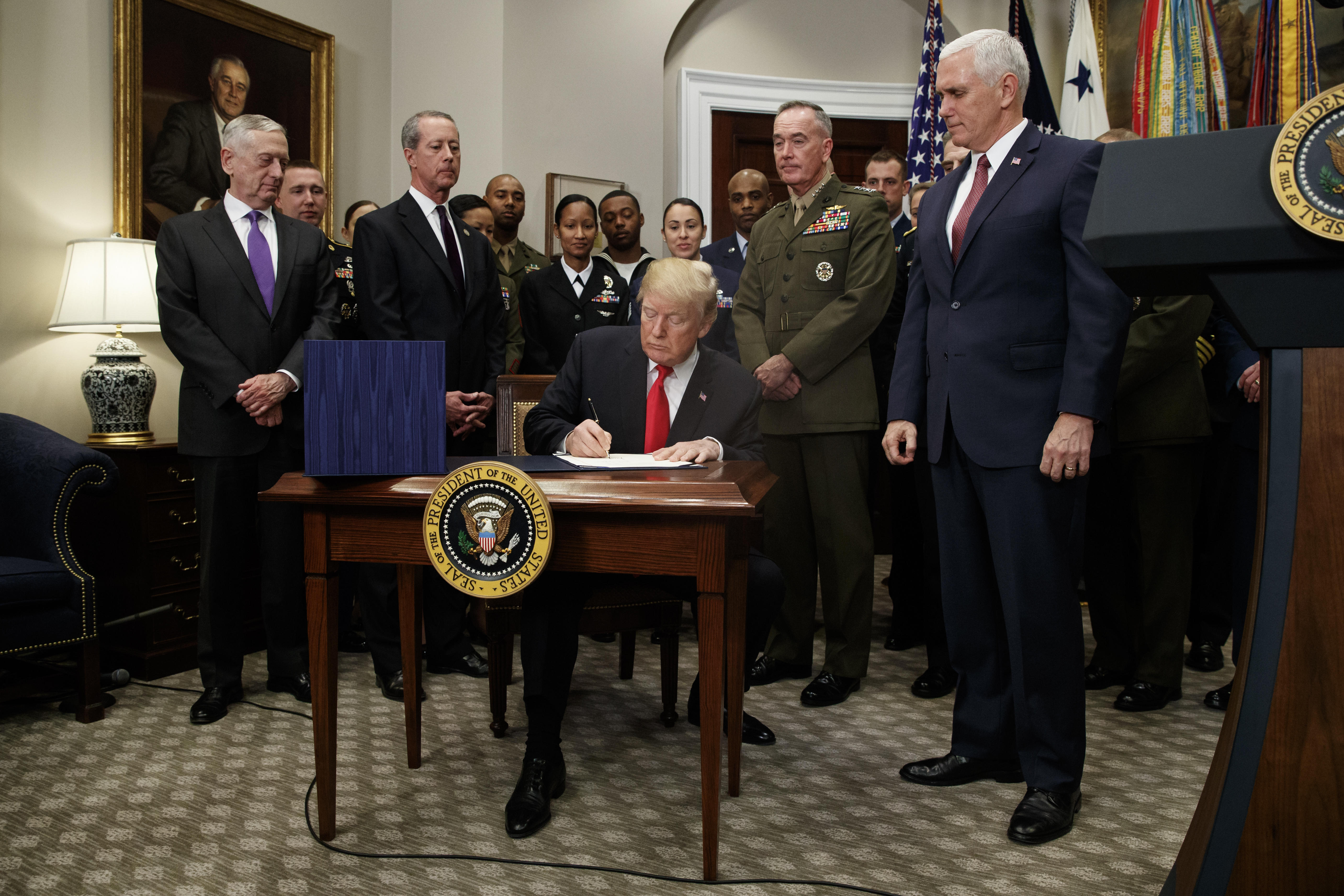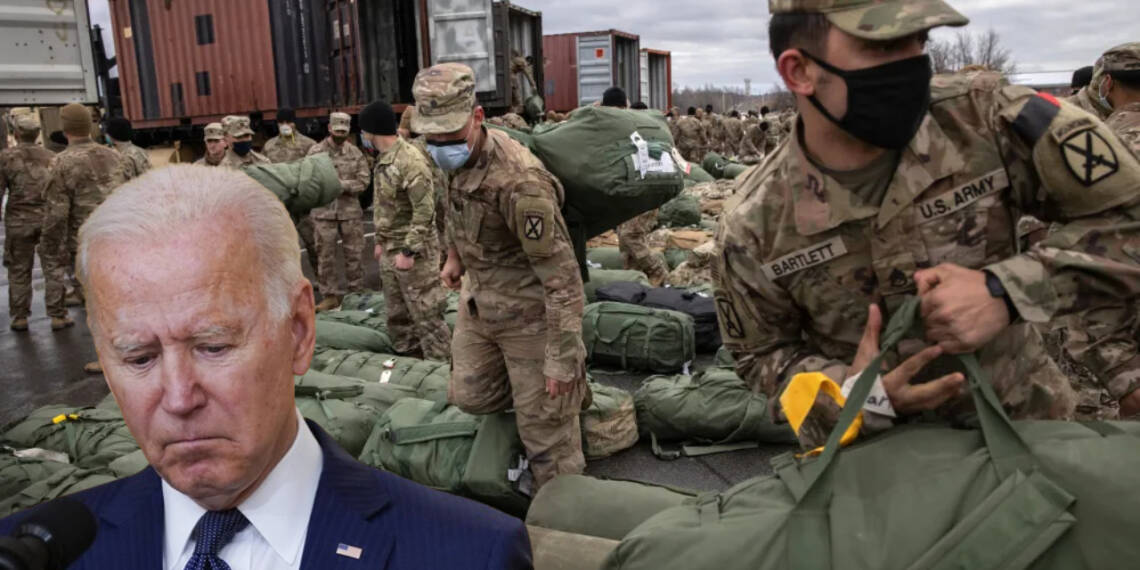In 2024, the US National Defense Authorization Act aimed to beef up troop numbers. But surprise, surprise – it went the other way. Instead of bulking up, the military went on a crash diet, hitting its smallest size since pre-World War II. And guess what? It’s not just small, it’s spread thinner than butter on toast worldwide. Military bigwigs are sweating bullets, worried about the message this tiny force sends to America’s enemies.
The US Army has witnessed significant personnel reductions, leading to a force of just 445,000 active-duty soldiers – a drop of more than 40,000 personnel, marking an 8.4% decrease over three years. Likewise, the Marine Corps is anticipating a reduction of 8,900 active-duty members, a 4.9% decrease, while the Air Force expects a loss of 13,475 airmen, equating to a 4% drop. The Navy is also slated for a reduction of 10,000 sailors, marking a 2.9% decline.
As a result, the total count of active-duty soldiers in the armed forces is projected to diminish to 1,284,500 in fiscal 2024. This marks a staggering decline of nearly 64,000 troops over the past three years and marks the smallest military force for America since 1940. By comparison, key adversaries like Russia and China boast 1.15 million and 2.35 million active-duty troops, respectively.

A sudden and steep decline in troop numbers poses significant hurdles for any nation, particularly for those with grand ambitions of empire-building. Surprisingly, the issue with recruitment doesn’t stem from inadequate funds. The recent defense policy bill, passing with resounding numbers, allocates a staggering $886 billion for defense programs, featuring a substantial 5.2 percent salary increase for service members, marking the most substantial raise in two decades.
Read More: Wokeism-ridden US army declared unfit to fight Russia and China
Even with increased funding promised, the outlook for recruiting appears so dire that politicians and military officials have suggested that allowing illegal immigrants—many of whom are rumored to contain terrorists and gang members—could be a temporary fix for the issue.
“Do you know what the recruiting numbers are at the Army, Navy and the Air Force,” asked Democratic Senator Dick Durbin last month. “They can’t find enough people to join our military forces. And there are those who are undocumented who want the chance to serve and risk their lives for this country. Should we give them a chance? I think we should.”
Join us on Telegram: https://t.me/tfiglobal
Conveniently, the Democratic “solution” to the issue misses the obvious: what happened to the US recruiting pool in the first place? Why, in comparison to other periods, have so many young men and women chosen to reject the life of a professional soldier? Does this have anything to do with the fact that public trust in the US military has reached a 20-year low? Have young men and women come to understand that the US military’s ultimate purpose is to use its imperialistic attitude to rule the entire world rather than “defend the homeland” against potential attackers?
Then there are concerns regarding the physical and mental well-being of America’s youth, given the startlingly high rates of drug abuse, obesity, and mental illness among them. These issues are a sign that the social fabric of the country is breaking down as a whole.
“The problem lies within American society, or rather, the lack thereof,” writes Brian Berletic, a geopolitical analyst and former US Marine. “It suffers from a general unraveling of family values, work ethic, and social cohesion. Additionally, there is a collapse of America’s education system, including vocational education, which creates a shortage of qualified candidates for economic and military activities.”

It appears more advantageous if Washington scales back its extensive network of military bases worldwide, which currently spans approximately 750 bases across 80 nations. Redirecting these resources could allocate additional funds toward revitalizing deteriorating urban areas and enhancing educational initiatives for the populace. Because, let’s face it, a military cannot function solely on equipment; it requires competent, well-educated individuals shaping critical decisions.
Simultaneously, some individuals highlight the prevalent ‘woke’ culture that surprisingly permeates the highest echelons of the military. This trend, often portrayed uncritically by the media, mirrors similar impacts witnessed at entities like Disney and Budweiser. This shift in mentality seems to deter individuals from pursuing military careers for comparable reasons.
Read More: Military-Industrial Complex demands that America needs more weapons, Biden likely to approve
This raises concerns about patriotism in an era when public education appears to sow seeds of animosity toward the nation among younger generations. Can these youths be relied upon to forsake their comfortable, passive lifestyles to defend their homeland? A brief scroll through the self-absorbed realms of Instagram, TikTok, and Facebook starkly reveals the nation’s focal points, painting a disheartening picture.
Considering these facets, a significant revamp of Washington’s foreign policy becomes crucial for enhancing the safety of both the United States and the global arena. A strategic shift towards a more defensive stance could significantly reduce global tensions by repatriating some troops and redirecting resources to vital national revitalization endeavors. This recalibration could foster a necessary ‘isolationist’ foreign policy, curbing the impulse for military ventures precisely as global conflicts, potentially involving formidable opponents like Russia or China, loom on the horizon.
However, the prevailing trajectory leans toward perpetuating militaristic imperialism, echoing historical declines witnessed in past empires. Without fundamental changes, history might regrettably repeat itself.
Watch More:








